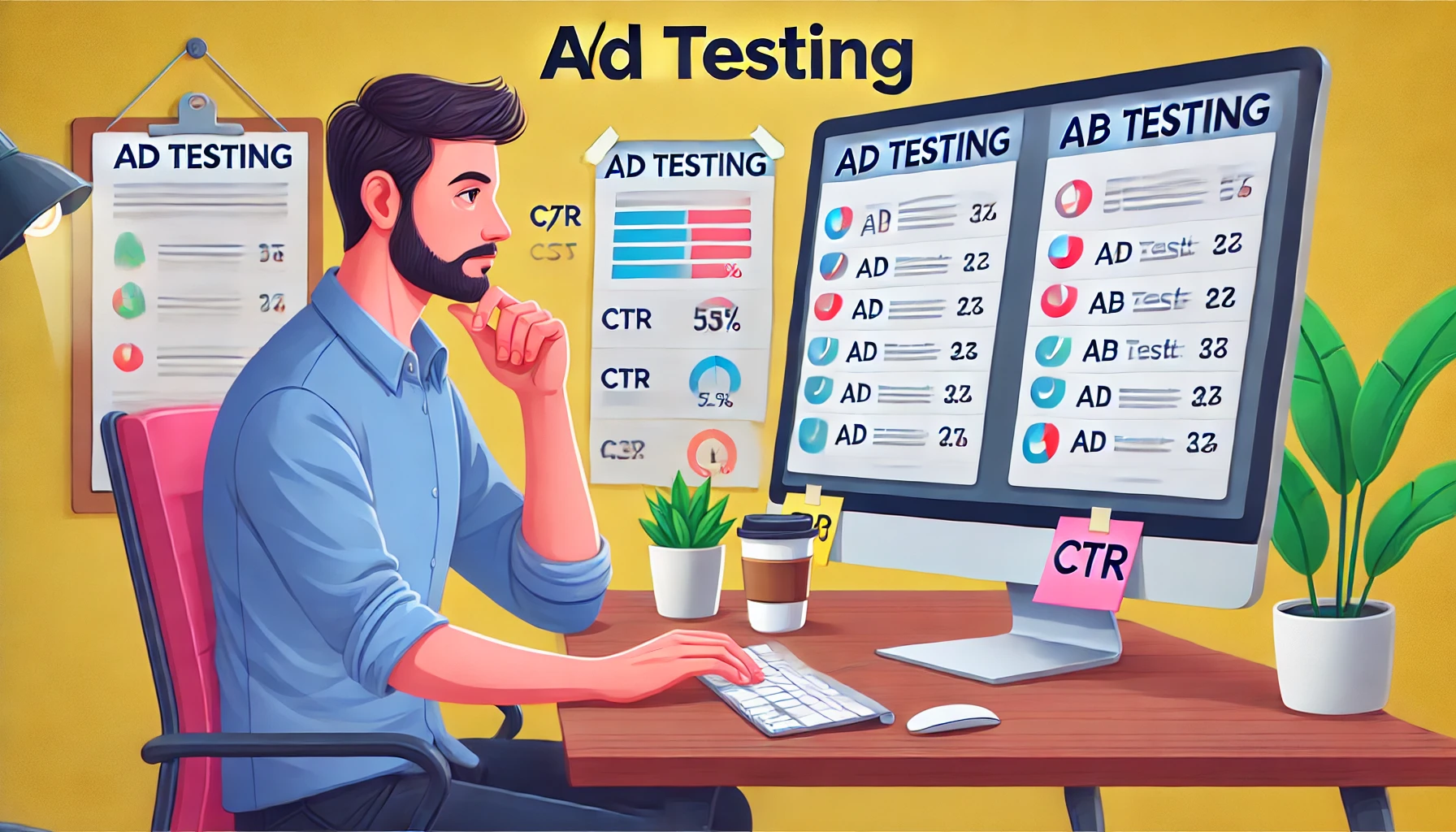📌 Introduction
Creating high-performing ads isn’t just about choosing the right audience or budget—it’s also about testing ad creatives and copy to find what resonates best with your audience. Many advertisers make the mistake of launching a single ad and hoping for the best. Instead, running structured A/B tests can significantly increase click-through rates (CTR), reduce costs, and boost conversions.
In this article, you’ll learn how to test ad creatives and copy effectively, which elements to experiment with, and which tools can help you optimize your campaigns.
🎯 Why Ad Testing is Important
✔ Increases Conversions – Identifies the most effective headlines, images, and CTAs.
✔ Reduces CPC (Cost Per Click) – Ads that perform better often cost less.
✔ Improves Engagement – Helps discover what grabs user attention.
🔎 1. What is A/B Testing for Ads?
A/B testing (split testing) is a method where you create two or more versions of an ad, changing one element at a time (e.g., image, headline, CTA) to see which version performs best.
✅ How A/B Testing Works:
✔ Create multiple ad variations with slight differences.
✔ Split your audience evenly across the different ads.
✔ Analyze which version gets more clicks and conversions.
🛠 Recommended Tools:
- Facebook Ads A/B Testing Tool – Compares different ad creatives and targeting.
- Google Ads Experiments – Tests variations of Google Ads campaigns.
- AdEspresso – Automates split testing for Facebook & Instagram Ads.
📊 2. Key Elements to Test in Ad Creatives
There are several elements you can experiment with to optimize performance.
🖼 1. Images & Videos
Visuals are the first thing users notice.
✔ Test bright vs. neutral colors.
✔ Try lifestyle images vs. product-focused images.
✔ Compare static images vs. short videos.
📝 2. Headlines & Ad Copy
Your headline and primary text should be clear, persuasive, and engaging.
✔ Test question-based vs. benefit-driven headlines.
✔ Experiment with short vs. long copy.
✔ Use numbers & statistics to grab attention.
🎯 3. Call-to-Action (CTA)
The CTA directs users on what to do next.
✔ Test different CTA buttons (e.g., “Sign Up Now” vs. “Get Started”).
✔ Compare urgency-based vs. soft-sell approaches.
🛠 Recommended Tools:
- Canva & Adobe Express – Create engaging visuals.
- Google Optimize – A/B test landing pages connected to ads.
📢 3. How to Analyze A/B Test Results
Once you run your test, it’s essential to measure results properly.
✅ Key Metrics to Track:
✔ Click-Through Rate (CTR) – Shows which ad grabs more attention.
✔ Conversion Rate (CVR) – Measures which ad drives more actions.
✔ Cost Per Click (CPC) – Helps identify cost-efficient creatives.
✔ Return on Ad Spend (ROAS) – Determines profitability of each ad.
🛠 Recommended Tools:
- Google Analytics – Tracks conversion performance.
- Facebook Ads Manager Reports – Analyzes ad engagement data.
🚀 Conclusion
Testing ad creatives and copy is essential for improving campaign performance. By running A/B tests on visuals, headlines, and CTAs, you can lower ad costs, increase conversions, and optimize engagement.
🔥 Key Takeaways
✔ Test different visuals, headlines, and CTA buttons.
✔ Run A/B tests using Facebook Ads Manager & Google Experiments.
✔ Track CTR, CPC, and conversion rates to measure success.
✔ Adjust based on data-driven insights for continuous improvement.
By implementing these strategies, you’ll create high-performing ads that drive more traffic and sales! 🎯
